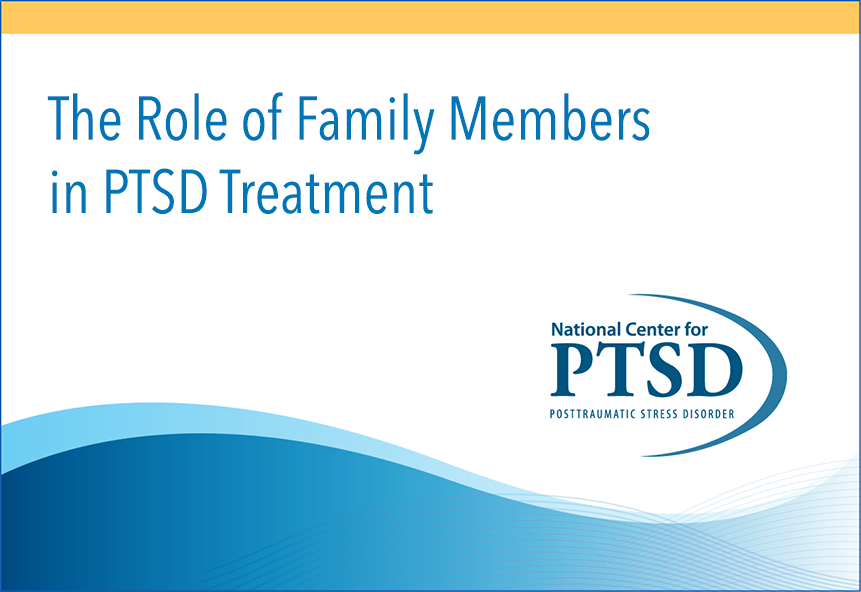PTSD: National Center for PTSD
The Role of Family Members in PTSD Treatment
Continuing Education
This section brings together free in-depth Continuing Education resources for the Professional community concerned with trauma.
The Role of Family Members in PTSD Treatment
- Date Created: 05/23/2022
- Time to Complete: 1 hour
- Credits: ACCME, ANCC, NBCC, APA, ASWB, Other Orgs
- Skill Level: Intermediate
- Course Series: PTSD 101, PTSD Consultation Lecture Series
 Author(s):
Author(s):
Description
Including family members or other support persons in a Veteran’s course of PTSD treatment may be beneficial, as research shows that there are important bidirectional impacts between the social environment and PTSD symptoms. However, it is relatively rare for Veterans to have one or more family-inclusive treatment sessions during the course of their PTSD treatment.
This course provides information from the perspectives of Veterans, family members, and VA clinicians regarding family-inclusive care. The author discusses Veterans’ and family members’ goals for family-inclusive PTSD treatment. Providers’ views and experiences are also described, including discussion of commonly cited barriers to providing family-inclusive care. The course offers specific advice for health care teams about how and when to discuss family involvement in care with Veterans, as well as outlining brief protocols that have been developed specifically for Veterans and their loved ones.
Goals and Objectives
- Describe the rationale for incorporating family members or other support persons into a Veteran’s PTSD treatment
- Discuss common goals that Veterans and family members have for family-inclusive treatment
- Identify 2 or more protocols to support brief family involvement in treatment


























